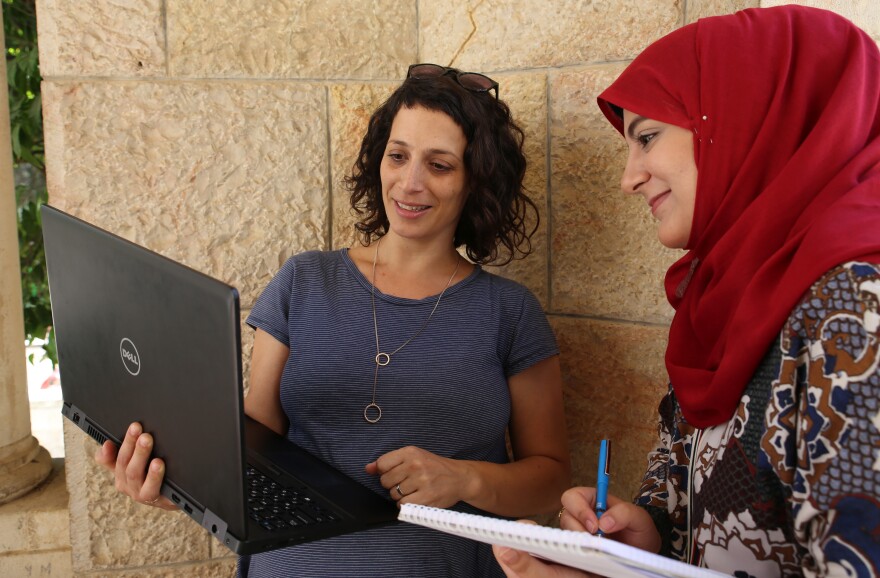Earlier this month, the Israeli government passed a law declaring Israel the nation-state of the Jewish people. The move was seen by many as putting the country’s Jewish identity above its democratic one.
Many of the new law’s provisions are already included in other laws, but they include highly controversial items like making Hebrew the only official language and making Jewish settlement a national value.
It is the latest development in decades of controversy and conflict between Israelis and Arabs in the region.
At first look, the story doesn’t seem to have much to do with science, but public health researchers at Tufts University see scientists as important players in improving Israeli-Palestinian relations.
They developed the Science Training Encouraging Peace Graduate Training Program, which pairs up one graduate student from Israel and one from Palestine and funds their training.
“They will work very closely together on whatever scientific issue that is their research project,” said Kim Kronenberg, who runs the program with her husband, Allen Taylor. “We don't impose any dialogue… but it happens naturally.”
Taylor and Kronenberg told Living Lab radio that the students form tight personal bonds, getting to know each others’ families and becoming good friends.
Originally, Kronenberg and Taylor thought they would bring the students to the United States for their studies, getting them out of the stressful situation of crossing the Israel/Palestine border each day on their way to work.
That turned out to be too expensive. Besides, students tended to stay in the U.S. after finishing their studies rather than going back home. Now, the pairs stay at universities in Israel and Palestine.
“So this way we assure that they serve their communities and the communities get to see the benefit,” Taylor said.
So far, the program has five pairs of students. The goal is to train 100 pairs. It’s not hard to see how they could achieve it -- one pair of students just brought in 12 new candidates from the West Bank.
“So you can see there’s a craving on the part of both Israelis and Palestinians to participate in some kind of a normal relationship,” Taylor said. “In a small region like that, these 100 pairs, who are going to go on and become the next generation of leaders, will have the tools with which to declare that they want to live in a peaceful and cooperative fashion.”




